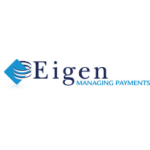 The post-pandemic era of travel sees us all fighting the pains of labor shortcomings and supply chain issues. These all lead to more hidden costs that are being mitigated through automation, but perhaps there’s one defensive play that hotels can add to their basket of low-hanging fruit. The world of payments is rapidly evolving, and the advent of 3DS – standing for ‘Three Domain Secure’ – may help your business by lowering processing fees, reducing fraud and saving your team time.
The post-pandemic era of travel sees us all fighting the pains of labor shortcomings and supply chain issues. These all lead to more hidden costs that are being mitigated through automation, but perhaps there’s one defensive play that hotels can add to their basket of low-hanging fruit. The world of payments is rapidly evolving, and the advent of 3DS – standing for ‘Three Domain Secure’ – may help your business by lowering processing fees, reducing fraud and saving your team time.
The good news is that this protocol is already standard practice for Europe, Africa and Australia – going on for almost two decades in some territories with 3DS2 currently being rolled out. The United States is next on deck, which may need to 3DS as the global standard in credit card (CC) payments in terms of what’s deemed a passing grade by payment card industry data security standards (PCI DSS) to in turn prevent interchange rate hikes.
Without getting into all the alphabet soup for the payment industry, what the three domains refer to are the broad-level delineations of parties involved to authorize payments and move funds:
- Merchant (in this case a hotel), acquiring (merchant’s) bank and payment gateway
- Cardholder and issuing (cardholder’s) bank
- Interoperability network such as a credit card processor
For many hotels at present, transactions are verified within the first and second domains. With 3DS, customers at a merchant’s payment terminal (first domain) are automatically brought to an issuer’s internal verification portal (second domain) where a distinct user authorization key or text-delivered, one-time password must be inserted.
This extra step helps to shift the burden of liability for fraudulent payments from the merchant to the issuing bank. Genuine fraud, or the unauthorized use of a card, is thus minimized while friendly fraud, or claiming a chargeback after services were adequately rendered, is also thwarted. Currently, many hotels have become prime targets for fraud, and 3DS promises some overdue relief for this ‘negative revenue’.
As a low-hanging fruit, we are mentioning this to you right now because getting your payment systems in order is a fairly simple task that’s a steppingstone towards successfully operating in the new normal. Upon examination, you may find that this project is easier to execute than one of the myriad others on the docket that you are considering.
To drive profitability for the rest of the 2020s, you can no longer rely on a huge topline revenue figure to pad your gross profit and net operating income (NOI). All the constant global uncertainty has demonstrated just how quickly out-of-the-red occupancy targets can disintegrate. Instead, the decade ahead will be defined by leaner, turnkey operations – fewer team members on hand to complete repetitive tasks and mandating more productivity from the entire team. Automation in every department is the only way achieve constantly achieve a healthy NOI.
The broader theme behind our push for 3DS adoption is that its implementation will ultimately help reduce direct costs, administrative time and those aforementioned negative revenues or ‘bad debt’. With this heightened level of transactional security also comes the flexibility to enact further upgrades to your payment ecosystem, such as 3DS2 which requires some friction in the secondary authorization requirements, mobile payments or digital wallets (like Apple Pay, Google Pay and WeChat Pay) and even cryptocurrencies. The sooner you upgrade your hotel’s payment apparatus, the sooner you can start cushioning your NOI then move on to solving far tougher challenges.
This article may not be reproduced without the expressed permission of the author.



























